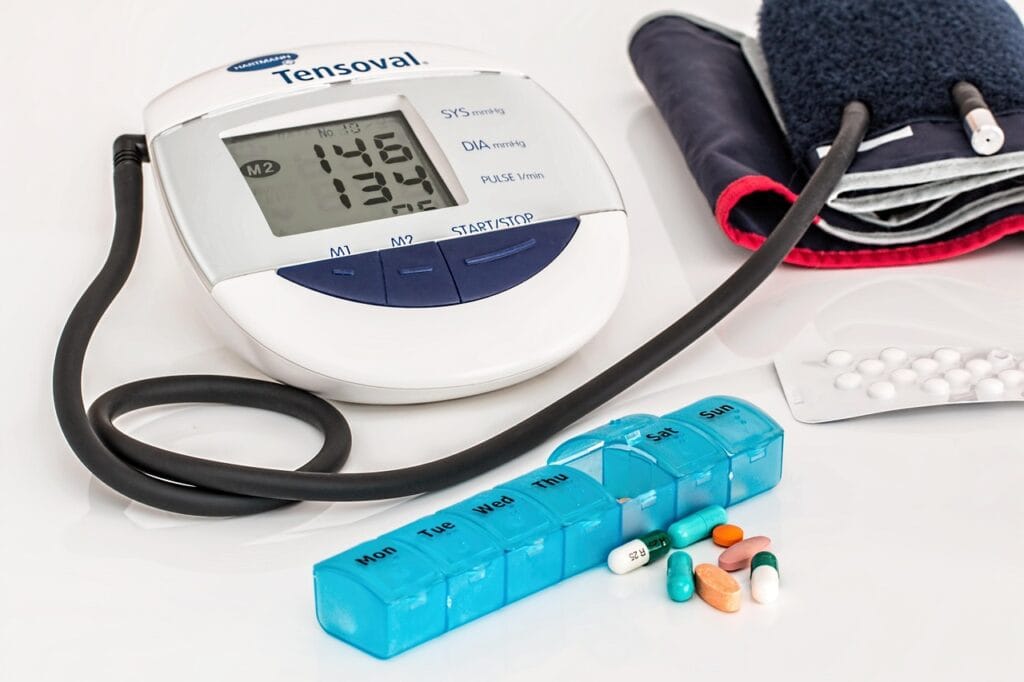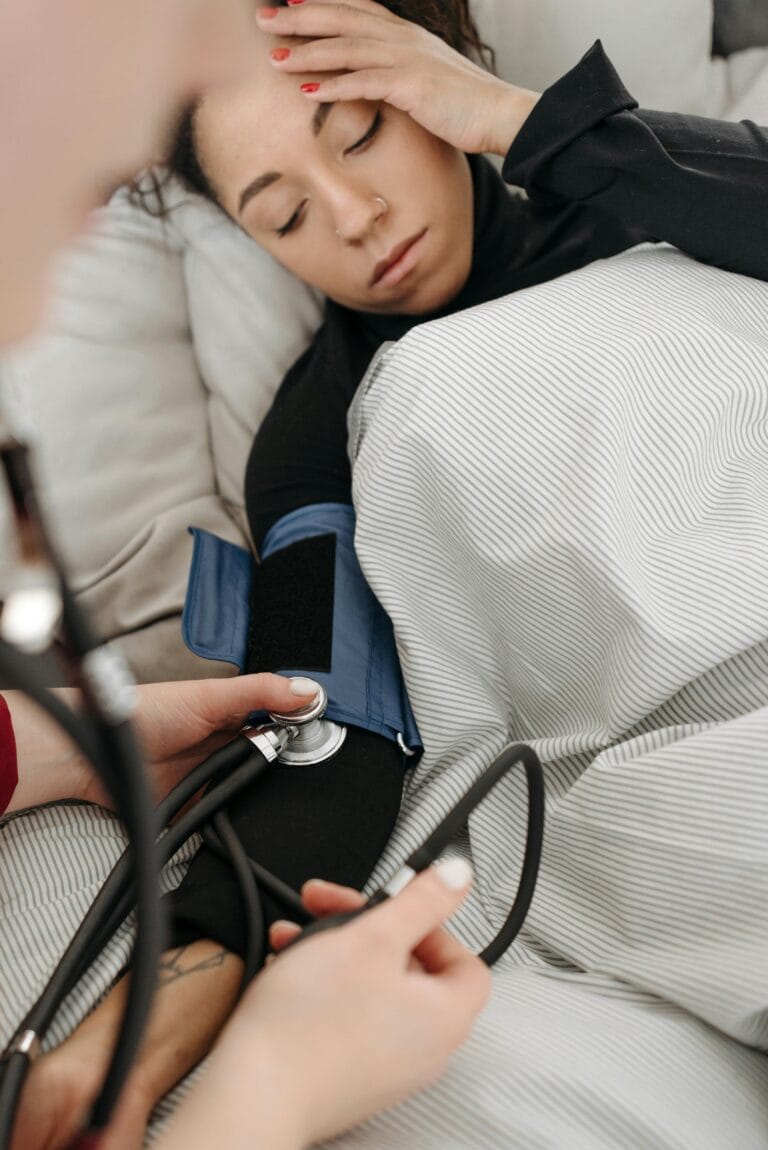FREE SHIPPING OVER $50
This Popular Supplement Could Spike Your Blood Pressure—Doctors Say Avoid It at All Costs

You walk into your local health food store or browse an online supplement shop, and you see shelves lined with products promising to boost your energy, improve your digestion, or help you manage stress. Many of these are derived from natural herbs, and the prevailing wisdom suggests that because they come from plants, they must be safe. But what if one of the most popular herbal supplements on the market is a hidden danger, silently working against your health?
For millions of people, a supplement that seems harmless could be a direct cause of a dangerous spike in their blood pressure. The truth is, for those with or at risk of high blood pressure, some natural supplements carry a serious risk that doctors say is not worth taking. This article will reveal the one popular supplement that doctors and cardiologists are warning against, explain the science behind its surprising effect, and provide the crucial information you need to protect your heart and health.
The Hidden Danger: The Popular Supplement That Spikes Blood Pressure
The supplement in question is licorice root extract. You may know it as a flavoring in candy, or perhaps you have seen it advertised as a remedy for an upset stomach, a sore throat, or a treatment for “adrenal fatigue.” Its long history in traditional medicine makes it seem like a safe, trusted choice for a variety of ailments. However, its perceived benefits come with a very real and potentially life-threatening risk for anyone with hypertension.
The danger lies not in the licorice flavoring itself but in a powerful compound found in the root called glycyrrhizin. While this compound gives licorice root its sweet taste, it also has a profound and dangerous effect on your body’s hormonal balance, a side effect that is often overlooked in the world of supplements.
The Science of the Spike: How Licorice Root Affects Your Body
The effect of licorice root on blood pressure is not a myth—it is a well-documented scientific fact. The mechanism by which it works is both fascinating and alarming.
1. The Glycyrrhizin Connection
When you consume licorice root with its active ingredient, glycyrrhizin, your body processes it in a way that interferes with a key hormonal process. Glycyrrhizin inhibits an enzyme called 11-beta-hydroxysteroid dehydrogenase type 2. That may sound complicated, but here is what you need to know: this enzyme is responsible for breaking down the hormone cortisol. When this enzyme is inhibited, cortisol levels in your body rise, and this has a domino effect on another crucial hormone called aldosterone.
2. The Aldosterone Effect
Elevated cortisol levels begin to mimic the effects of aldosterone, a hormone that regulates sodium and water balance in your body. When aldosterone levels are too high, it tells your kidneys to retain more sodium and water and to excrete potassium. This causes your total blood volume to increase, and as a result, your blood pressure begins to rise. This effect is known as pseudoaldosteronism, and it is a direct consequence of consuming too much glycyrrhizin.
Are You At Risk? The Symptoms to Watch For
The dangers of licorice root are most pronounced for those who already have high blood pressure (hypertension) or are at risk of developing it. If you are taking this supplement for any reason, you need to be aware of the signs that your blood pressure might be rising.
The problem with high blood pressure is that it is often called the “silent killer” because many people have no idea they have it. When symptoms do appear, they can include headaches, shortness of breath, dizziness, or a pounding sensation in your chest or neck. If you have any of these symptoms while taking licorice root, it is crucial to stop immediately and seek medical attention.
The Doctors’ Consensus: Why They Say to Avoid It
The scientific community is in clear agreement: the risks of licorice root for those with hypertension are too great to ignore. Doctors and cardiologists are trained to understand the complex interactions between supplements and medications, and they are well aware of this specific risk. The American Heart Association has issued warnings about the consumption of licorice for those with heart conditions. The consensus is simple: if you have a history of high blood pressure, avoid licorice root in all forms. This includes teas, lozenges, and extracts. It is a powerful reminder that “natural” does not always mean “safe.”
While licorice root is the most common culprit, you should also be aware of other supplements that can affect blood pressure. These include certain forms of ginseng, bitter orange (often found in weight-loss supplements), and high doses of caffeine. It is always best to be informed and to consult with a doctor before adding any new supplement to your routine, especially if you have a pre-existing health condition.
Protecting Your Health: What to Take Instead
The good news is that for every risky supplement, there is a safe and effective alternative. If you are taking licorice root for digestive issues, consider a tea made from ginger or peppermint. For a sore throat, a spoonful of local honey can be just as soothing.
Furthermore, there are a number of supplements that doctors say can actually help to lower blood pressure when used correctly. These include magnesium, potassium, and Coenzyme Q10. However, it is essential that you do not self-prescribe these. A doctor can help you determine the right nutrients and dosages for your specific needs, and they can ensure that a new supplement will not interfere with any medications you may be taking.
Conclusion
In a world filled with endless supplement options, it is easy to fall into the trap of believing that every natural product is harmless. But the truth is, your health is too important to leave to chance. The well-documented risk of licorice root is a powerful reminder that knowledge is your best defense. By understanding the science behind this common supplement and heeding the warnings of doctors, you can protect your heart and take control of your health.
Related Articles
- Creatine Results: Do You Really Need to Take It Every Day? Experts Break It Down
- 9 Doctor-Recommended Supplements That Help You Look Younger—#4 Is a Game-Changer
- The Truth About Fish Oil and Blood Pressure—What Cardiologists Want You to Know
- The $0.50 Supplement That Builds Muscle, Slows Aging & May Protect Your Brain from Alzheimer’s—Backed by Scientists
- Collagen Isn’t Just for Skin—Here’s How It Targets Belly Fat and Weight Gain After 50







